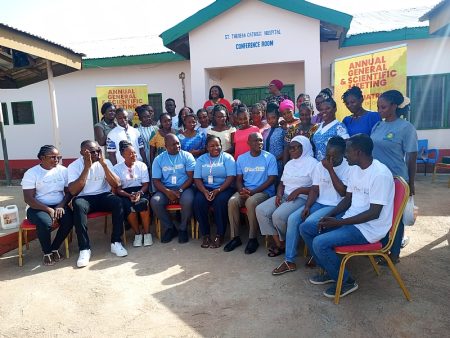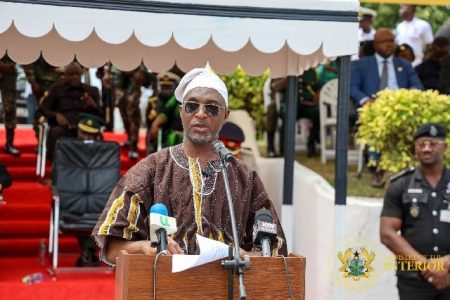Ghana, a nation grappling with the devastating environmental and societal consequences of illegal mining, commonly known as “galamsey,” has recently witnessed a surge in public discourse surrounding the issue, sparked by a controversial proposal from a prominent religious figure. St. Sark, General Overseer of Open Arms Ministry, has called for the deployment of suicide drones, programmed to “shoot to kill,” as a radical solution to eradicate galamsey. This extreme suggestion, delivered during a press conference at his church in Kumasi, has ignited a firestorm of debate, highlighting the growing frustration and desperation surrounding the government’s perceived inability to effectively combat the illegal mining crisis.
St. Sark’s proposal centers on the utilization of loitering munitions, also known as suicide drones or kamikaze drones, to patrol designated mining zones. These autonomous weapons systems are designed to linger in the air, scanning for pre-programmed targets. Upon identifying a target, the drone would then crash into it, detonating its explosive payload. St. Sark argued that this aggressive tactic would swiftly eliminate illegal mining activities within months, asserting that the drones would effectively target individuals and equipment engaged in the illicit practice. He dismissed current government efforts, including the deployment of military personnel and specialized task forces, as ineffective, wasteful, and ultimately futile in halting the spread of galamsey.
The clergyman’s rationale for advocating such a drastic measure stems from his deep-seated frustration with the persistence of illegal mining despite ongoing government interventions. He criticized existing strategies as insufficient and unconvincing, pointing to the continued prevalence of galamsey as evidence of their failure. St. Sark argued that the current approach is a “waste of time, energy and state resources,” emphasizing the need for a more forceful and decisive response to deter illegal miners. He contended that the threat of immediate and lethal action, posed by the deployment of suicide drones, would serve as a powerful deterrent, effectively eradicating the menace.
As an alternative to the drone deployment, St. Sark proposed an equally aggressive policy of destroying the equipment utilized by illegal miners. He urged the government to burn excavators and vehicles involved in galamsey operations, symbolically and practically crippling the illegal mining infrastructure. He even suggested adding salt to the engines of excavators before burning them, ensuring their complete destruction and rendering them unusable for future illegal activities. This drastic measure, according to St. Sark, would send a strong message of zero tolerance and discourage further engagement in illegal mining.
St. Sark’s radical proposals have elicited a mixed response, with many expressing concerns over the ethical and legal implications of deploying lethal autonomous weapons systems against civilians. Critics argue that such a drastic measure would constitute an excessive use of force and could potentially lead to unintended casualties. They also question the practicality and effectiveness of using drones to patrol vast and often remote mining areas. The legality and morality of using such weapons against civilians engaged in illegal activities, though destructive, remain a point of contention.
However, despite the controversy surrounding his proposals, St. Sark’s comments have resonated with some segments of the population who share his frustration with the government’s perceived inaction in addressing the galamsey crisis. His pronouncements reflect a growing sense of urgency and desperation within Ghanaian society to find effective solutions to combat illegal mining, which has caused widespread environmental degradation, including deforestation, water pollution, and land degradation. The debate ignited by St. Sark’s controversial suggestions underscores the complex and multifaceted nature of the galamsey problem and the need for a comprehensive and sustainable approach to address it. While his proposals are considered extreme by many, they highlight the urgent need for decisive action and the growing public frustration with the seemingly intractable problem of illegal mining in Ghana.














